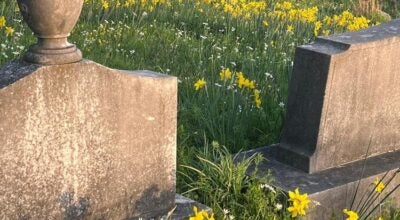The last train ride serves as lesson
Published 7:00 am Friday, June 6, 2014
By Leavern Guy Former city council member
In 1899, only 34 years after the Emancipation Proclamation, my grandfather, Richard Griffith was born in Prentiss Miss.
In 1917 at age 17 he went to St. Louis, Mo. where he volunteered to fight in World War I.
In 1971, I met my grandfather for the first time. He was this tall dark skinned proud black man with a thunderous voice. When he spoke, it seemed as if the dishes on the shelf would tremble.
Several years after that, I visited my grandfather at the University Hospital in Jackson where he was a patient. This encounter is one of the most memorable moments I have about my grandfather.
When I entered his hospital room he and another man were traveling down memory lane in their conversation. Without interrupting, I sat quietly in the chair next to the left side of the bathroom door. Eavesdropping on their conversation, I hear the man say, “I was so glad to get out of that hell hole.”
My grandfather responded by saying, “it was almost as worse as the one that I was trying to get away from,” and then they burst out with a loud laugh as if it was a sigh of relief. Finally acknowledging my presence in the room, they both looked toward me so I introduced myself.
The man said “I haven’t seen this old Negro (speaking of my grandfather) since our last train ride.”
When he left, I asked my grandfather what he meant by that. He explained to me that the “last train ride” was when they were coming home from World War I they were sitting on the same seat together. When the train was about a mile away from the state of Alabama’s Mason Dixie Line, the black soldiers were ordered to move to the back of the train because of the racist Jim Crow laws. I then asked my grandfather, “Who was that man?”
He told me that he and the man had fought in the war together. I then asked him why he volunteered for the war, even though he didn’t have any freedoms and/or privileges while he was in Mississippi. He said he believed in the idea of freedom and the words written in the Declaration of Independence, “We hold these truths to be self-evidence that all men are created equal” then he said (quoting Dr. King) “one day our nation will live up to this creed.”
Realizing the patriotic spirit of my grandfather and others that were in similar situations, I stood up from my chair and saluted my grandfather.
At some point I hope, as my grandfather did, that the reality of these divinely inspired words come true. If they are to become true we must all understand that there is only one race. That is the human race. We must always be mindful that when those young men and women go into battle the enemy doesn’t see black, white, rich, poor, republicans or democrats, the enemies are trying to kill Americans.
Finally, I asked my grandfather for the man’s name. He only knew him as Braxton. Braxton happened to be a tall, professionally dressed, red haired very slim white man.
May God bless America.





